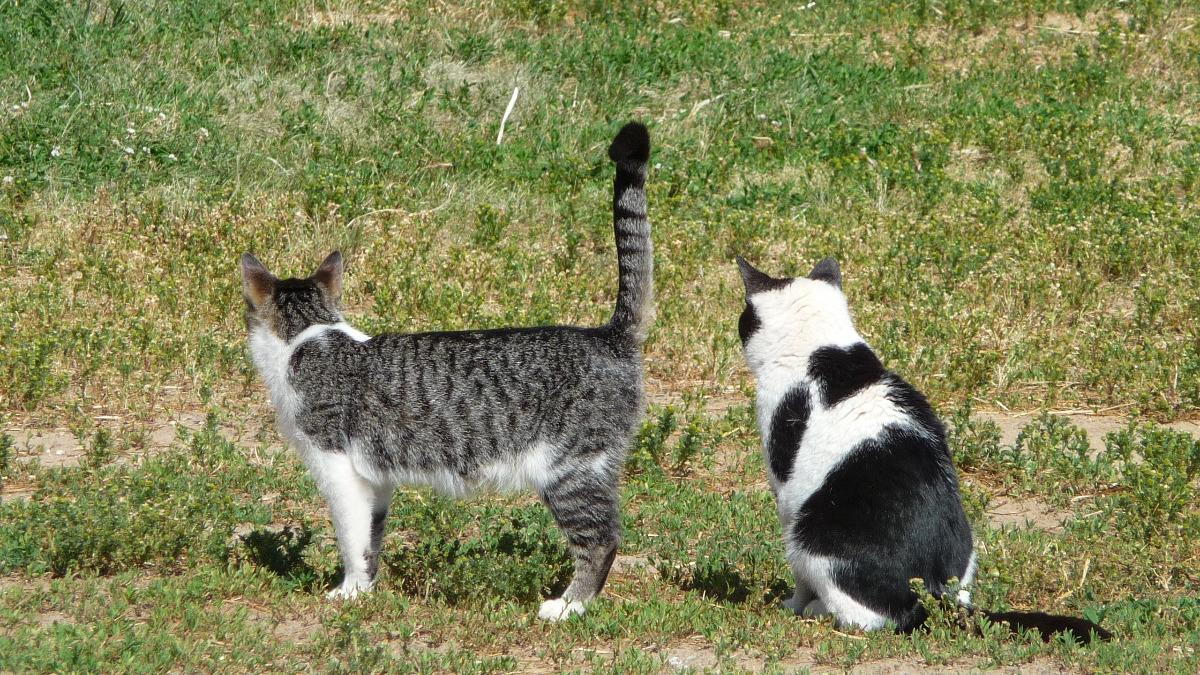What You Should and Shouldn't Feed Your Cat

- posted: Oct. 30, 2022
What you Should and Shouldn’t Feed your Cat
We all want the best diets for our pets, but sometimes what we think sounds like a good food choice for our pets can actually cause them harm. Let’s learn more about both good and questionable diets for our feline friends
Cats are obligate carnivores, meaning their bodies are designed to eat meat. Mice, birds and small prey animals are a cat’s natural diet. They may ingest some grasses and grains from the digestive systems of their prey, but a vegetarian diet is not recommended for cats. Feeding a vegetarian diet to a cat will not provide all the nutrition he or she needs. Vegan and vegetarian diets for cats are usually lacking in essential amino acids, especially taurine which is found in meat. Taurine is critical for normal vision, digestion, heart muscle function, fetal development, and a healthy immune system. If a cat eats a taurine deficient diet, serious problems can occur such as retinal damage causing blindness or damage to the heart muscle leading to dilated cardiomyopathy.
Since cats are obligate carnivores, one might think feeding a raw meat-based diet would be ideal. In reality, raw meat diets can contain dangerous bacteria. Raw diets may have bacteria such as E. coli, Listeria and Salmonella which can cause disease not only in our cats, but can also cause illness in people and may be transmitted to people through food bowls, litter boxes, feces and bacteria can be present in the cat’s mouth and coat. While it may be possible to formulate a nutritious raw diet, the risks of bacterial infection are great and these diets are not recommended.
Home prepared diets can also be an alternative to commercially prepared cat foods; however, it is often difficult to create a nutritionally sound diet and may take a lot of time and special ingredients to prepare. If you do choose to cook food for your cat, be sure to contact your veterinarian or a board- certified pet nutritionist for proper recipes. Don’t rely on internet recipes which may be lacking in vital ingredients.
So, what diets DO veterinarians recommend feeding your cat? Most veterinarians recommend high quality AAFCO tested commercially available diets such as Purina Pro-Plan, Hill’s Science Diet or Royal Canin. Feeding a combination of canned and dry food is desirable, especially for kittens as this allows cats to accept a variety of foods and textures and may make it easier should your cat require medication or a therapeutic diet in the future. Meal feeding or feeding using a foraging toy is preferred over free feeding. This will help your cat maintain his or her proper weight.
Remember, diets such as raw diets or vegetarian diets are not necessarily good for your cat and may ultimately be harmful. Stick with good quality pet foods and ask your veterinarian for recommendations to keep your cat feeling fine throughout his or her life.
This blog brought to you by the Patton Veterinary Hospital serving Red Lion, York and the surrounding communities.
https://www.dvm360.com/view/what-veterinarians-should-know-about-3-unconventional-cat-diets
Location
Patton Veterinary Hospital
425 E Broadway
Red Lion, PA 17356
